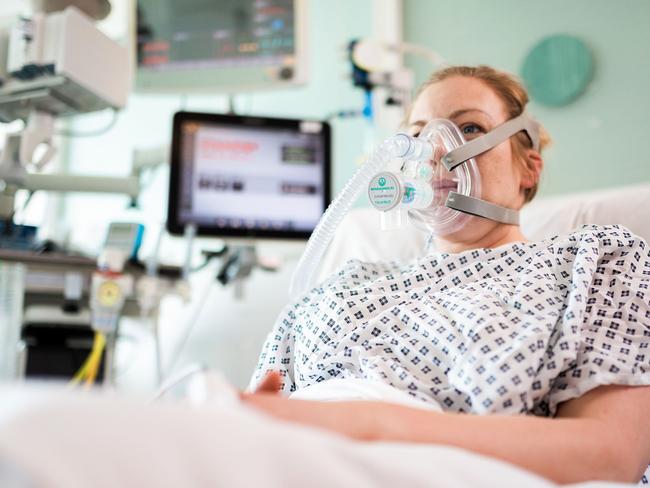Guide directs Australian doctors who gets a ventilator first if hospitals are overwhelmed during coronavirus outbreak
A guide for doctors reveals who gets access to a ventilator and other scarce equipment first if Australian hospitals are overwhelmed during the COVID-19 pandemic.
Coronavirus
Don't miss out on the headlines from Coronavirus. Followed categories will be added to My News.
Sick doctors, pregnant women and parents of young children will get priority access to ventilators if the COVID-19 pandemic worsens.
It comes as stem cell company Mesoblast begins a clinical trial of a stem cell treatment to help patients who develop an immune system overload in response to COVID-19 called a cytokine storm.
The treatment has already shown promise treating children who develop a similar reaction called graft versus host disease after a bone-marrow transplant.
An ethical framework for doctors devised by Sydney Health Ethics committee at the University of Sydney has been released to guide hospitals how to allocate scarce health resources during the virus outbreak.
The guide suggests hospitals set up a special committee to make decisions about who gets ventilators and other scarce equipment to relieve doctors on the frontline from having to make difficult decision.

“It also has the advantage of protecting those clinicians caring directly for patients from some of the direct stress and anxiety if they are the ones to be the decision makers about allocation,” the guidelines state.
It is important that gender, ethnicity, sexuality, disability, religious and political views are not used as the basis for deciding who gets care as this would be discriminatory, the guidelines state.
However, length and quality of life after hospital treatment will be relevant in decision making, the committee said.
The document revealed, the factors considered are:
• the most efficient use of resources;
• most medical benefit;
• most cost-effective use;
• giving priority to health care workers so they are able to continue working and benefit the population as long as possible;
• priority to the young over the old to maximise length of lives saved;
• priority to those with care responsibilities.
When deciding between two cases of equal merit “tie-breaker” considerations would come into play.
“For example, clinicians who are ill with COVID-19 might receive priority as they could re-join the fight against COVID-19,” the guidelines said.
“Other possible groups that we could choose to prioritise might include pregnant women or those with caring responsibilities for others (e.g. children or elderly relatives etc.),” the guidelines said.
The framework warns doctors not to behave like heroes and work without proper protective equipment.
“Clinicians should avoid “heroic” or “sacrificial” actions that are likely to take them out of the health care system (e.g. entering a room without PPE to resuscitate a patient who is known to be infected),” the guidelines said.
Director of Sydney Health Ethics Professor Angus Dawson said the request to develop the ethical framework came amid concerns that intensive care units will be overwhelmed by COVID-19 patients.
Originally published as Guide directs Australian doctors who gets a ventilator first if hospitals are overwhelmed during coronavirus outbreak


